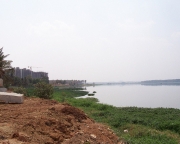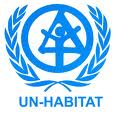Political
South Asia Rivers should be source of uniting people, not dividing them
Posted on 23 Apr, 2010 03:27 PMGuest Post by Himanshu Thakkar
New Delhi: A workshop organised yesterday on the sidelines of a South Asia civil society gathering under the banner of Assembly of a Union of South Asian Peoples at Jawaharlal Nehru University came up with a set of recommendations to address the question of conflict over shared rivers in the region. The key message from the meeting, which addressed issues pertaining to Pakistan, Bangladesh, Sri Lanka, Bhutan, Nepal and India, was that South Asia’s rivers should be a source of uniting peoples, not dividing them. The Assembly is being organised as a civil society counter to the official SAARC meeting to be held in Thimpu from 28-29 April 2010.
Impact of electricity prices and volumetric water allocation on energy and groundwater demand management
Posted on 22 Apr, 2010 07:53 PMThis paper introduces a theoretical model to examine farmers’ response to changes in power tariff and water allocation regimes vis-a-vis energy and groundwater use. The author begins by explaining the context as one where the existing direct & indirect regulations and direct management interventions have been ineffective in arresting groundwater depletion. Also, there is an absolute paucity of sufficient empirical data to compare and analyze the differential impacts of different levels of pricing of electricity, and groundwater rights allocations on water and energy productivity.
The paper presents a review of farm sector pricing theories and thereafter analyses the potential impact of different modes of electricity pricing on productivity of groundwater use.
Rain water harvesting, recycling, reuse of waste water and using less water will help in water conservation, says Sekhar Raghavan, director of Rain Center, Chennai
Posted on 21 Apr, 2010 05:45 PMPost forwarded by : Sekhar Raghavan
Rainwater filtration from large roofs in polluted environments to potable quality
Posted on 21 Apr, 2010 05:25 PMIs there anyone in India who is willing to develop a multi-stage Saferain unit with me?
Imagine a 5000 sq metre factory in New Delhi, (or Shanghai, or wherever).
The air is polluted, the roof is polluted, and, yet, I say that potable. or near so, can be delivered in a rain event. The following is a cut and paste. This is how it's
A study on Bellandur tank and changes due to urbanisation - A report by CASUMM
Posted on 21 Apr, 2010 05:08 PM This article by Collaborative for the Advancement of the Study of Urbanism through Mixed Media (CASUMM) presents the case of Bellandur Tank in Bangalore city and highlights how rapid unplanned urbanisation has led to the destruction of one of the biggest water bodies in Bangalore Urban district.
This article by Collaborative for the Advancement of the Study of Urbanism through Mixed Media (CASUMM) presents the case of Bellandur Tank in Bangalore city and highlights how rapid unplanned urbanisation has led to the destruction of one of the biggest water bodies in Bangalore Urban district.
The tank provided sustenance for people who lived in the areas surrounding it and provided water for irrigation, household purposes such as drinking, washing and cleaning, besides providing ample supply of fish. The tank was thus an integral part of the society and had a relationship with the communities residing around the tank.
Jobs via DevNetIndia dated 21 Apr 2010
Posted on 21 Apr, 2010 12:56 PM- Watershed Development Team Member (Forestry)
Antodaya
Location: Thuamul Rampur, Kalahandi, Orissa
Last Date: April 30, 2010
Case studies on Water Management by Industry from the CII-GBC National Awards for Excellence in Water Management (2007)
Posted on 21 Apr, 2010 12:43 PM![]()
The CII-GBC National Awards for Excellence in Water Management 2007 are an important step towards encouraging, supporting and applauding industry efforts to conserve water and reduce toxic effluent discharge. As India's economic boom gathers more and more momentum with each passing year, industrial water and energy use and related environmental impacts are going to be among the most critical factors in resource sustainability debates in the country and elsewhere. The companies portrayed represent a wide spectrum of industry: paper, metals, agro-processing, synthetic fibre, petroleum, transport, cement, energy, fertilizer, soft drinks and more.
Financing on-site sanitation for the poor: A six country comparative review and analysis - A report by WSP (World Bank)
Posted on 20 Apr, 2010 06:58 PMThis report by the Water and Sanitation Programme (WSP) draws attention to the fact that a very high percentage (40%) of the population in the world does not have access to basic level of sanitation, which has serious health consequences and puts a considerable economic burden on the poor. The report explores the issue of what can be the most appropriate financing mechanisms to meet the sanitation needs of the poor.
Public screening of the documentary "Water and a City", CiSTUP, Bangalore
Posted on 20 Apr, 2010 04:31 PMOrganizer: CiSTUP and a few folks at praja.in
Venue: Golden Jubilee Seminar Hall, Civil Engineering Dept, IISc, Bangalore
The screening will be followed by a panel discussion. The panelist who have confirmed are:
Rejuvenation of community toilets - A policy paper by UN-HABITAT and Government of Madhya Pradesh
Posted on 20 Apr, 2010 04:12 PM The policy paper examines the condition of community toilet in terms of its infrastructure, operation & maintenance, uses and payment of user charges. The paper is a result of a joint collaboration between Water for Asian Cities (WAC) Programme of UN-HABITAT and the Directorate of Urban Administration & Development, Government of Madhya Pradesh.
The policy paper examines the condition of community toilet in terms of its infrastructure, operation & maintenance, uses and payment of user charges. The paper is a result of a joint collaboration between Water for Asian Cities (WAC) Programme of UN-HABITAT and the Directorate of Urban Administration & Development, Government of Madhya Pradesh.
In Madhya Pradesh, WAC is supporting Asian Development Bank-financed project in cities of Bhopal, Gwalior, Indore and Jabalpur to improve and expand urban water and sanitation services. This study has been taken up to monitor implementation of the water and sanitation related targets.